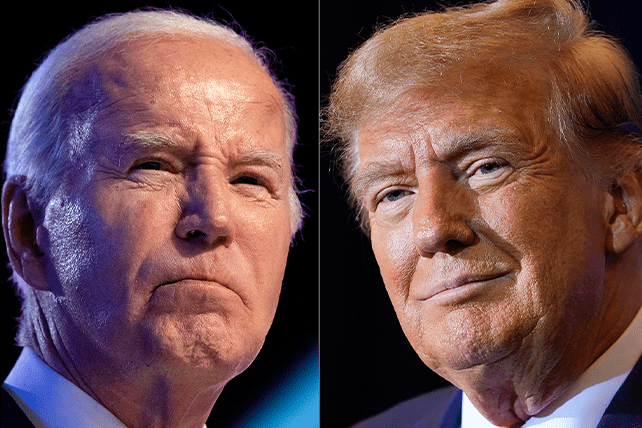(RNS) — On Election Day in November 2022, Pastor Charlie Berthoud of Covenant Presbyterian Church in Madison, Wisconsin, sat at a table outside the church’s polling place and handed out treats and encouragement.
“Anyone want a nonpartisan cookie?” he recalls asking neighbors who came by to vote.
“We want to thank people for taking part in the democratic process,” said Berthoud, who believes voting is both a civic duty and an act of faith. That idea, he said, is enshrined in the constitution of the Presbyterian Church (U.S.A.), which Covenant belongs to.
“Voting is in our job description,” said Berthoud, who hopes to hand out more cookies this November.
This fall, the outcome of the presidential election may be determined by how church members like those at Covenant do that job.
The Difference-Makers
While evangelicals and Christian nationalists have made the most of the God and country political headlines in recent years, experts say they aren’t as numerous or influential as other faith groups in the swing states — such as Wisconsin — where the presidential election will likely be decided.
For example, about half of voters in Wisconsin identify as mainline Protestants or Catholics, said Craig Gilbert, the former Washington bureau chief of the Milwaukee Journal Sentinel and a fellow at the Marquette University Law School’s Lubar Center for Public Policy Research and Civic Education. The “nones” — those who claim no religion — make up another quarter. White evangelicals (16%) and other faiths make up the rest.
Gilbert said he and a colleague looked at polling from 2020 and compared it with more recent polls. Their study showed that both candidates are seen less favorably than they were in 2020 — though former President Donald Trump has become more popular with born-again voters while President Joe Biden has become more popular with nones.
Predicting what will happen this fall is tricky, he said.
“You can talk yourself into reasons why neither guy can win,” he said. “They are both more unpopular than they were the last time they met each other.”
Nationwide, some faith groups will be courted by campaigns as part of turnout operations, such as nones and Black Protestants, who tend to back Democrats, and white evangelicals, who overwhelmingly vote for Republicans.
But the gap between the two parties is closer among Catholics and mainliners, making them targets for persuasion — even as both groups have inched closer to Republicans.
“You can sort of think of white, nonevangelical Protestants and white Catholics as the center of the political spectrum,” said Greg Smith, associate director of research at Pew Research Center.
Here’s a look at how the faith vote is playing out in these battleground states.
Pennsylvania
While Biden has Pennsylvania roots and is a regular Mass-attending Catholic, he may not find enthusiastic support in his home state among those who share his faith. Both he and Trump are unpopular with voters, said Christopher Borick, professor of political science and director of the Muhlenberg College Institute of Public Opinion.
“I think the major takeaway is that indeed there is lots of dissatisfaction,” said Borick, referring to the results of an April 2024 Pennsylvania survey about the presidential election.
In that poll, Trump led among Catholics by 45% to 41% for Biden. Among Protestants overall, Trump got 56% of support, while Biden got 33%. Folks from other major religions and atheists/agnostics favor Biden over Trump.
“For a practicing Catholic and someone that loves these Pennsylvania roots to not be winning that group is challenging,” said Borick. “But that’s the nature of the Catholic vote.”
Michael Coulter, professor of political science and humanities at Pennsylvania’s Grove City College, said Pennsylvania — where closely contested matches are increasingly common — will likely come down to motivating swing voters, especially among mainliners and Catholics.
“These might be people who might not be switching from Trump to Biden or from Biden to Trump — but they might be switching from nonvoter to voter,” he said. “And that becomes a very important thing.”

